Sullivan Elementary 23-24
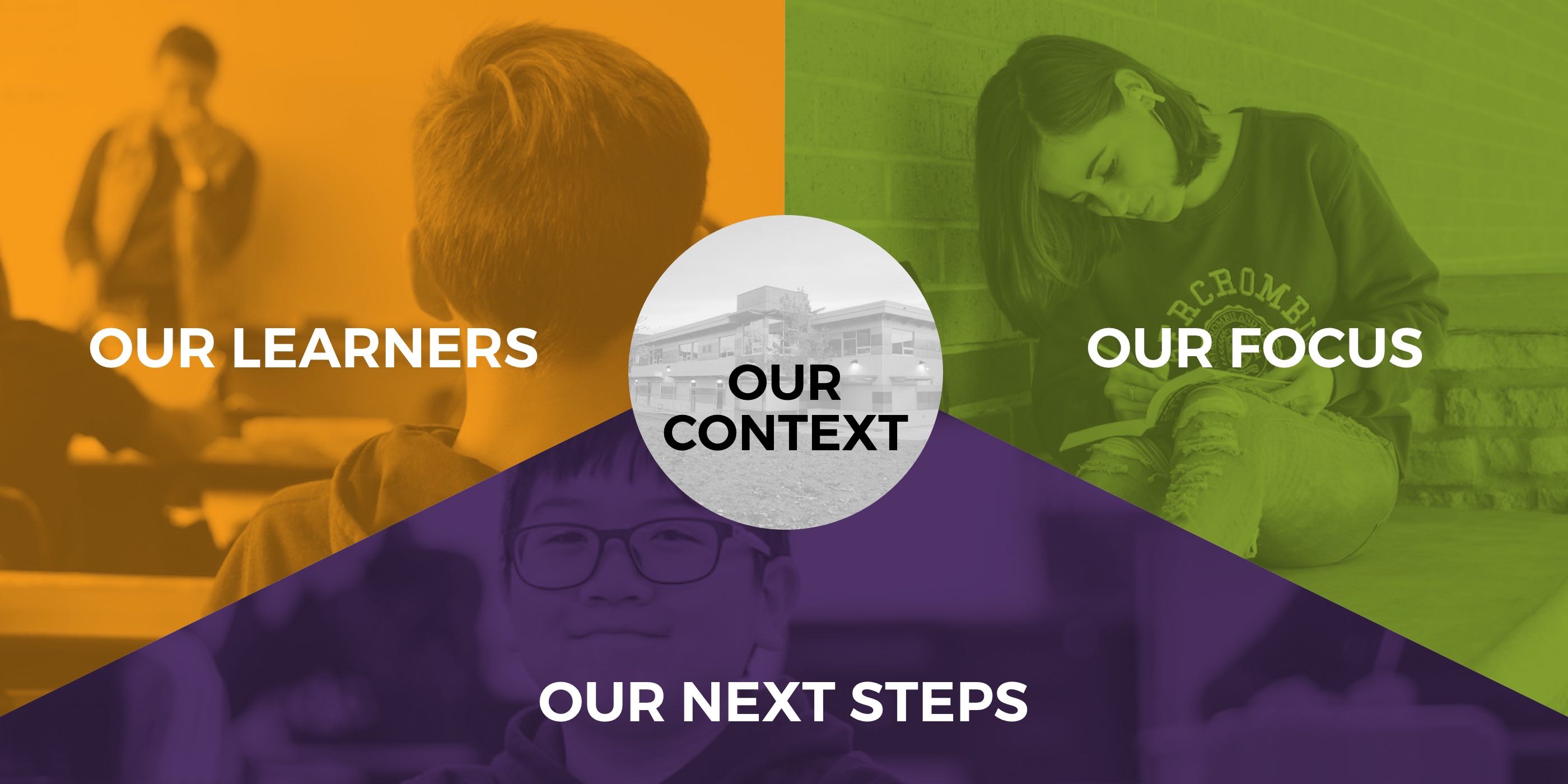

OUR LEARNERS
Literacy is "the ability to understand, critically analyze, and create a variety of forms of communication, including oral, written, visual, digital, and multimedia, in order to accomplish one’s goals" (BC Ministry of Education Curriculum Overview website). This is a foundational skill that our learners will need in all areas of life- for work, for home, and for a myriad of other reasons. A strong understanding is necessary for success in other curricular areas as it is embedded into all other content areas. Our learning plan for the year will focus on reading, and more specifically on phonemic awareness and early literacy skills at the early primary level.
In terms of our students' literacy skills, our learners are curious, eager to learn, and eager to participate in school activities. We have found that our students are imaginative and creative- they are good oral storytellers. By early intermediate, many students have developed good decoding skills. Across the grades, they can make good connections and have good background knowledge. They are also adept at using technology, and by the intermediate grades, they are able to find information that they need.
Here are some curricular competency statements for skills that our readers do well:
Our learners can find joy in sharing stories.
Our learners can be curious about the world around them.
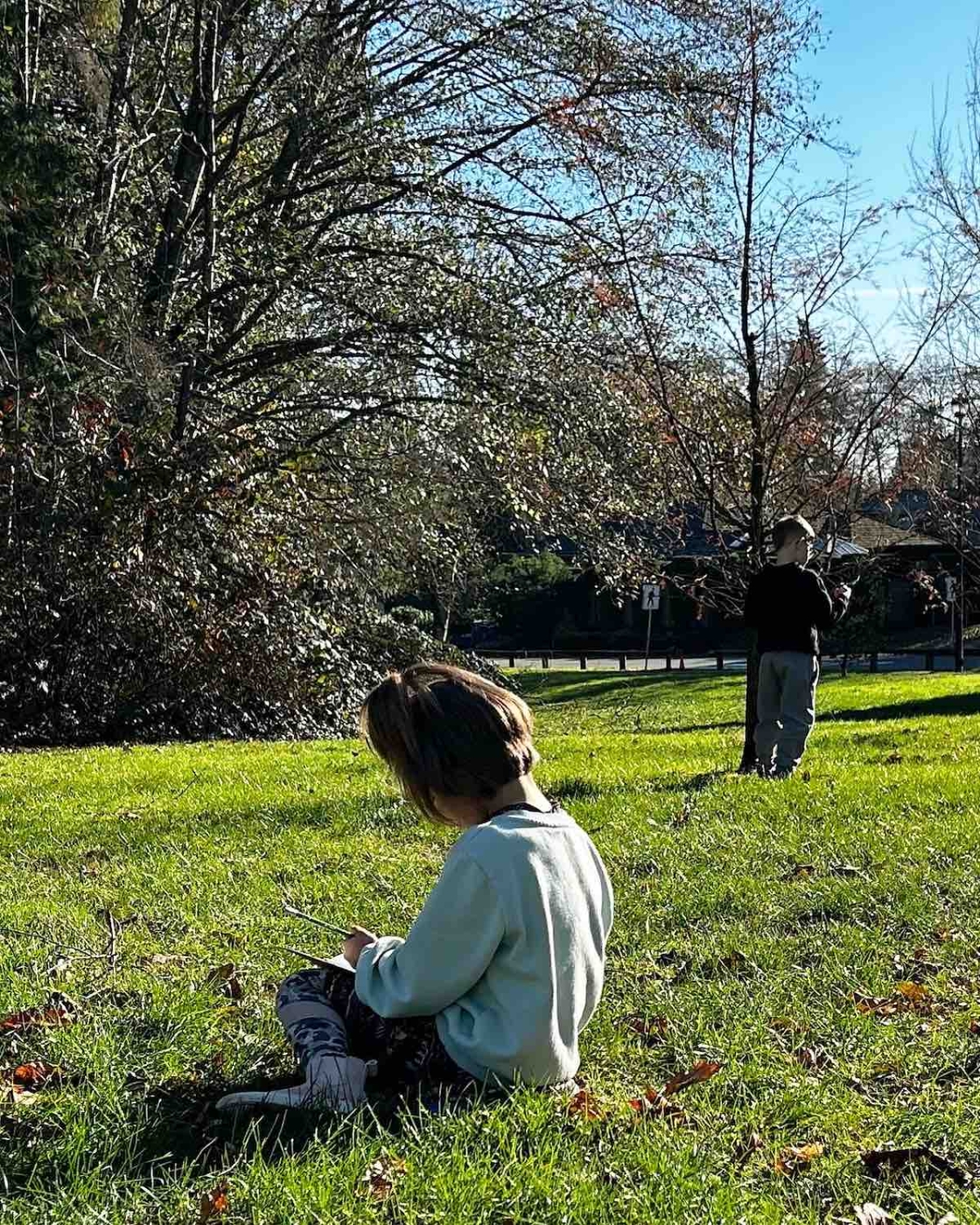
Our learners can be playful while they are learning.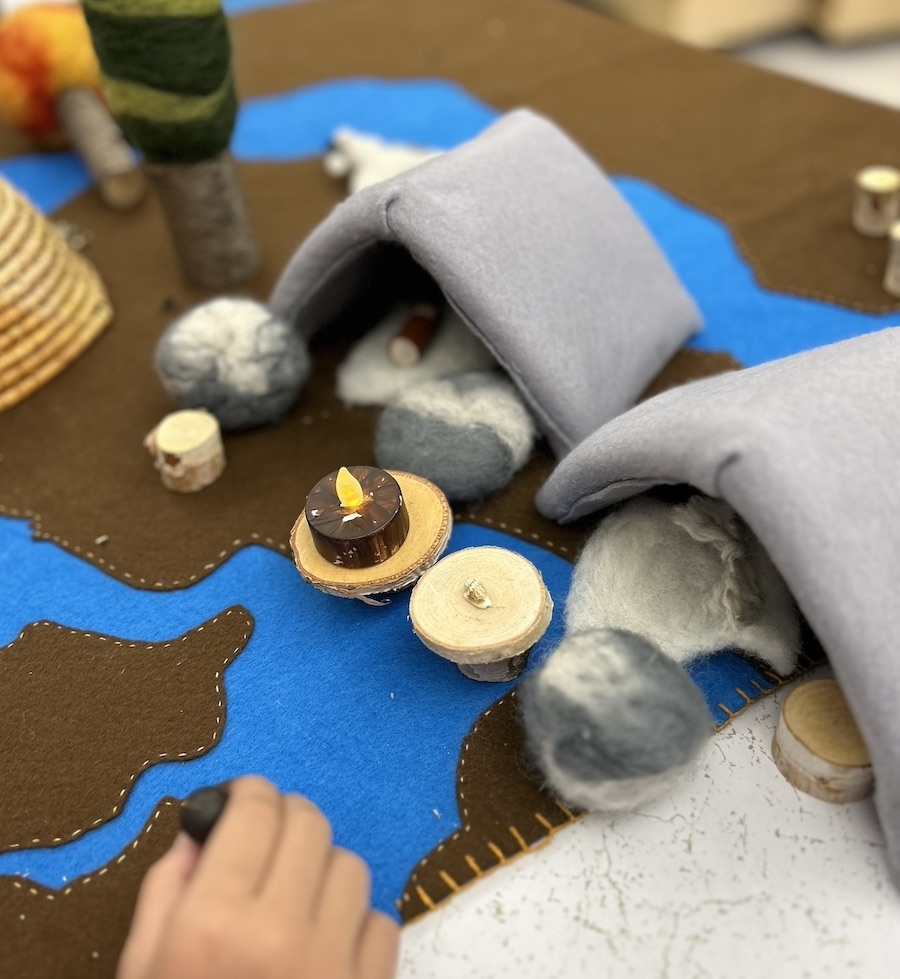
OUR FOCUS
Post Covid we have noticed a significant change in the demographic of our learners as noted in the chart below. More of our children are multi language learners. As a result we have come together as a primary team to set goals to ensure we are providing playful, yet explicit literacy instruction to support a strong literacy foundation for all our learners.
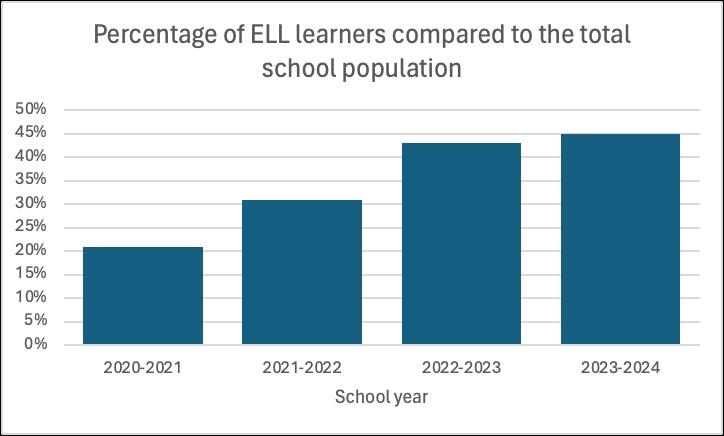
Our goals are focusing on reading, and in particular, a set of pre-reading skills that are called phonological and phonemic awareness. Before students learn to read, there are some basic building blocks of language and pre-reading skills that they must learn in their early years and in kindergarten. Students who are later in developing these early language skills in spoken language may have a harder time learning to read and write. These are:
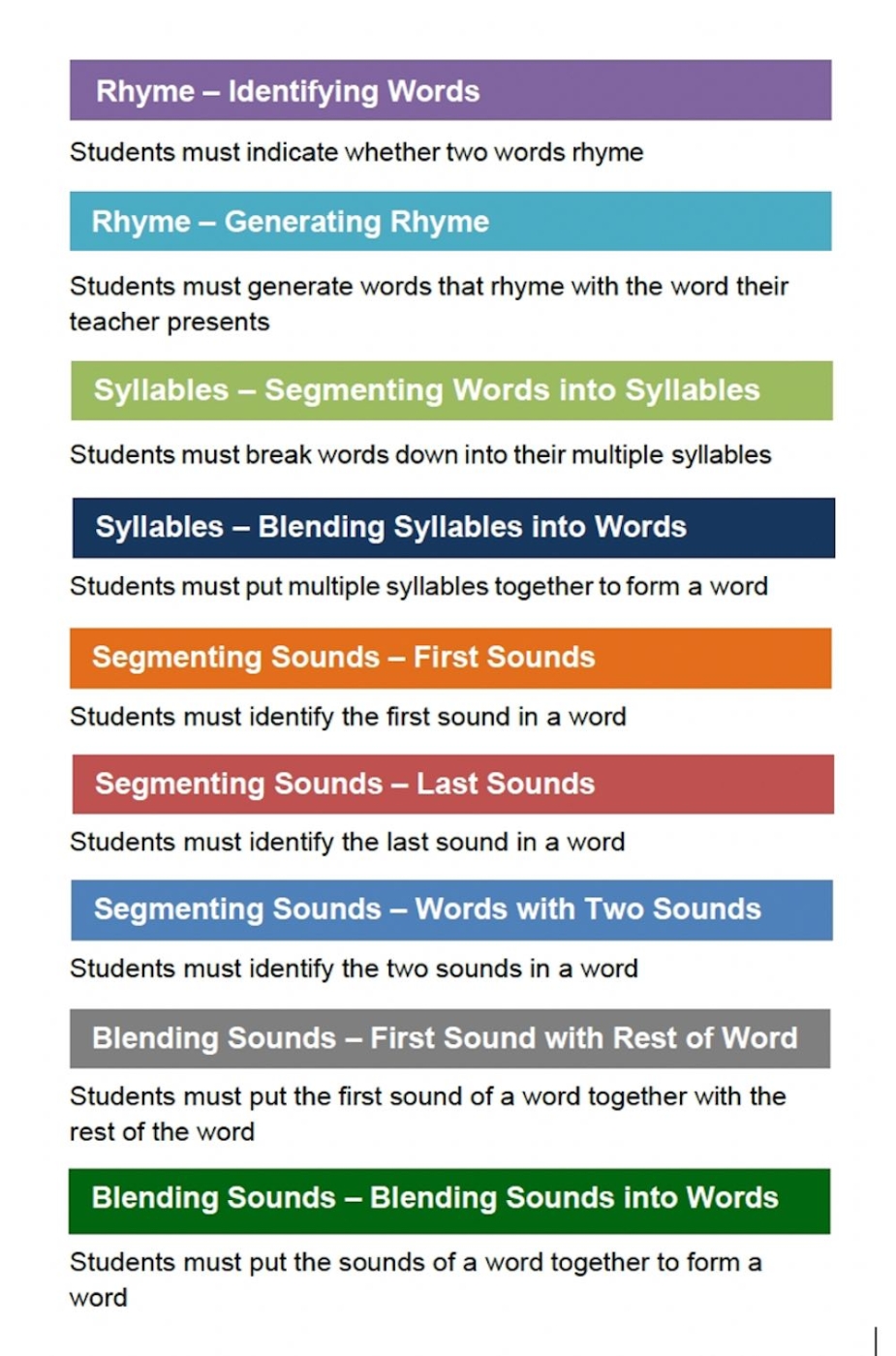
Our learning goals for this year:
- Use foundational concepts of print, with a focus on letter-sound relationships and phonological awareness
- Focus on language features, structures, and conventions: in particular, phonemic and phonological awareness
- Phonological refers to the sounds of words (as opposed to their meanings):
- Phonemic awareness is a specific aspect of a learner’s phonological awareness: a child’s ability to segment spoken words into phonemes (e.g., c / a / t) and to blend phonemes into words indicates a developing phonemic awareness.
- Phonological awareness involves the abilities to hear and create rhyming words, segment the flow of speech into separate words, and hear syllables as “chunks” in spoken words.
Our question:
We are wondering how our early learners' reading skills will improve when we use a targeted skill-based program focused on strengthening decoding skills, high frequency word knowledge and increasing phonemic awareness using a specific phonics program. We are curious to see if this Gr. 1/2 cohort will improve in their overall reading skills (decoding, fluency, and comprehension) and if this will help improve their spelling and writing skills.
Intervention strategies:
50 min targeted instruction based on assessment of decoding and sight words initial and subsequent terms.
In a typical literacy session:
- Phonological & phonemic awareness activities (word families, whiteboard spelling, word segmenting boxes, games, word building, printing, targeted writing instruction, phonics program)
- High frequency word instruction
Results:
Grade 1:
Decoding / High Frequency Word Recognition:
- Overall, showing growth in both decoding and high frequency word recognition. Decoding means the ability to sound out words phonetically. High frequency words are words that students should know by looking at them, rather than by sounding out- ex. the.
- While reading shared texts, children are using decoding rather than the 3 cueing systems (Does it look right? Does it sound right? Does it make sense?)
- Please note that each term the learning expectations grow, and the data reflects the change in expectations. All children are showing growth, but they may not match the term expectations.
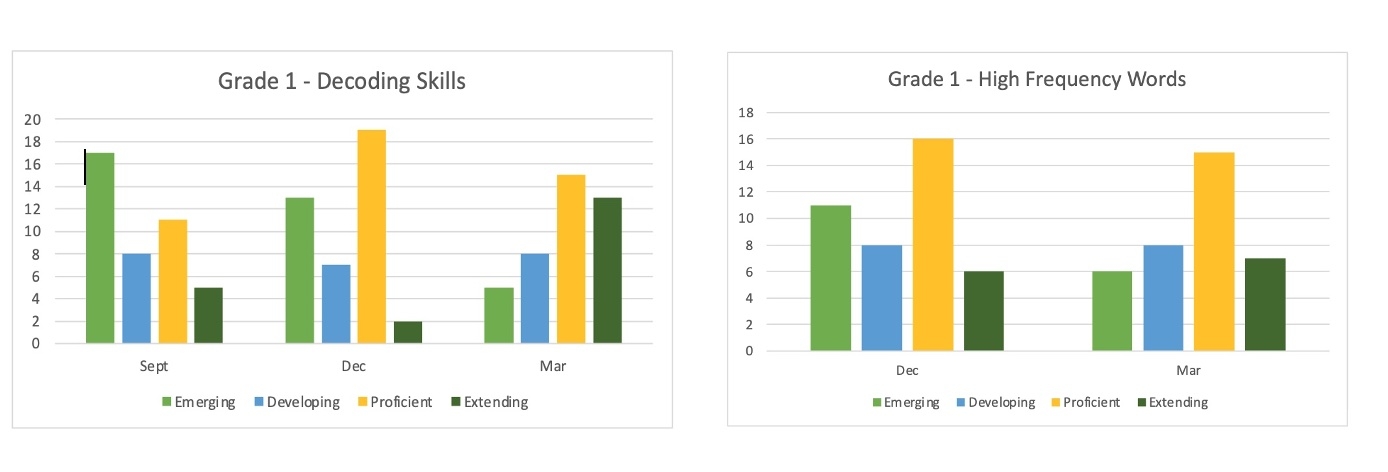
Writing
- At the beginning of the year, many children were expressing their ideas and thoughts through pictures, initial sounds and some commonly used words
- By the end of the year, children were more confident in expressing their thoughts using sentences. This includes appropriate casing, letter formation and end of sentence punctuation.
- It is evident in their writing that children are applying their phonological skills to write independently as well as using more high frequency words
- We are noticing high engagement and increased independence while writing
Grade 2:
Decoding / High Frequency Word Recognition:
- Significant growth over the course of the year with targeted instruction of both decoding and high frequency words
- Evidence of parent involvement in reviewing sight words has increased high frequency word knowledge
- Application of decoding skills lags behind the memorization and knowledge of high frequency words. Children are meaning making and are more proficient decoding words with meaning, rather than using their skills to decode nonsense words
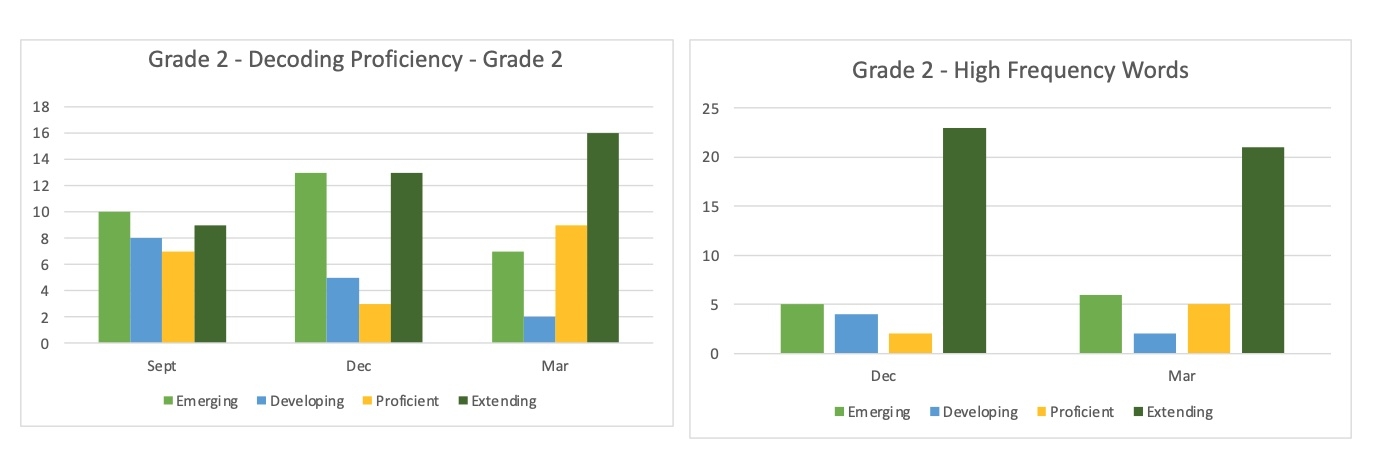 Writing
Writing- At the beginning of the year, children were able to express their ideas using phonetic spelling and some commonly used words.
- They struggled with letter casing, space, formation, punctuation and general sentence structure
- Now we see more consistent use of spacing, casing and end of sentence punctuation
- Evidence of introduced spelling patterns and their increased use of high frequency words
- More confidence while writing and increased stamina
- Increased supporting details and some descriptive language
OUR NEXT STEPS
Next year, our Grade 1 and 2 teachers will continue teaching this same phonics based reading program, but will make some changes based on the results from this year.
- We will continue to monitor and adjust our student learning plan to meet the needs of our students based on our data collection
- we will continue to facilitate growth by identifying what is working and what needs to be improved
- we will continue to align our instructional practices with our Learning support team to ensure similar language and scope and sequence of learning
- we will explore methods to further evaluate the impact of our plan and apply this feedback to adjust ongoing teaching strategies
- we will continue to explore assessment practices to accurately measure student growth over time
